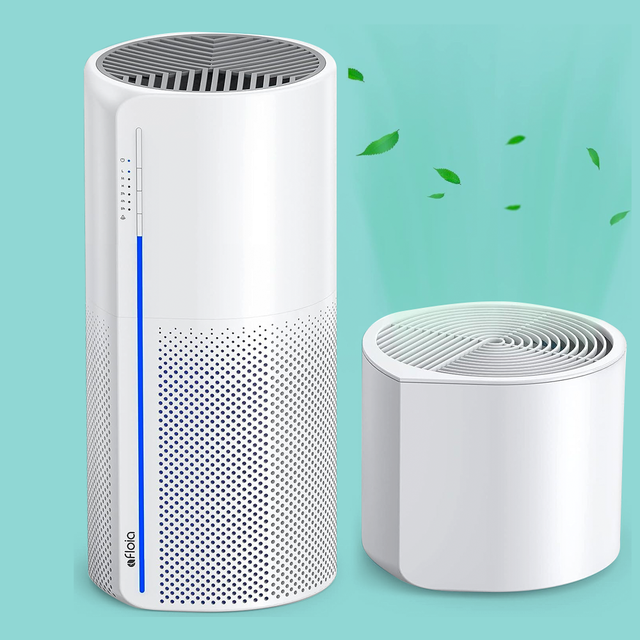What is Best for Allergies Air Purifier Or Humidifier

Dealing with allergies can be a daily struggle. Finding the right solution is crucial.
Many people wonder whether an air purifier or a humidifier is better for allergies. The answer depends on your specific needs. Air purifiers remove allergens from the air, while humidifiers add moisture to dry environments. Each has its benefits, and choosing the right one can improve your comfort.
Understanding their functions will help you decide which is best for your allergy relief. This guide will explore both options, making it easier to choose the right device for your home and health. Keep reading to find out which one suits you best.
Air Purifiers
Air purifiers are devices that clean the air inside your home. They remove contaminants and improve air quality. For people with allergies, air purifiers can be a great help. They can reduce the allergens that cause symptoms.
How Air Purifiers Work
Air purifiers work by pulling in air from the room. They use filters or other technologies to trap and remove particles. Clean air is then released back into the room. The process repeats to keep the air clean.
Types Of Air Purifiers
There are several types of air purifiers. Each type uses a different method to clean the air:
- HEPA Filters: These filters trap 99.97% of particles that are 0.3 microns or larger.
- Activated Carbon Filters: These filters remove odors and gases from the air.
- UV Light Purifiers: These use ultraviolet light to kill bacteria and viruses.
- Ionizers: These release charged particles that attach to pollutants, causing them to fall out of the air.
Benefits For Allergy Sufferers
Air purifiers offer many benefits for allergy sufferers:
- Reduces Allergens: They remove pollen, dust, and pet dander from the air.
- Improves Breathing: Cleaner air makes it easier to breathe.
- Prevents Symptoms: Fewer allergens can mean fewer allergy symptoms.
Limitations
While air purifiers are helpful, they have some limitations:
- Limited Range: They only clean the air in one room at a time.
- Filter Maintenance: Filters need to be replaced regularly to stay effective.
- Not a Cure: Air purifiers do not cure allergies, they only reduce symptoms.
Humidifiers
Humidifiers are devices designed to add moisture to the air. They are often used to improve indoor air quality and provide relief for various respiratory issues. Let’s explore how humidifiers work, the types available, their benefits for allergy sufferers, and their limitations.
How Humidifiers Work
Humidifiers function by increasing the humidity level in a room. They release water vapor or steam into the air, making it less dry. This added moisture can soothe irritated respiratory passages.
Types Of Humidifiers
There are several types of humidifiers, each with unique features:
- Evaporative Humidifiers: Use a fan to blow air through a wet wick.
- Ultrasonic Humidifiers: Use ultrasonic vibrations to create a fine mist.
- Steam Vaporizers: Boil water to produce steam, which is then cooled before being released.
- Impeller Humidifiers: Use a rotating disk to fling water at a diffuser, breaking it into tiny droplets.
Benefits For Allergy Sufferers
Humidifiers can provide significant relief for those with allergies:
- Moisturize Nasal Passages: Helps ease dryness and irritation.
- Reduce Itchy Eyes: Less dry air means less irritation.
- Prevent Skin Dryness: Keeps skin hydrated and less prone to itching.
- Ease Coughs: Moist air can reduce the severity of coughing.
Limitations
Despite their benefits, humidifiers have some limitations:
- Mold Growth: High humidity can promote mold and dust mites.
- Maintenance: Regular cleaning is essential to prevent bacteria buildup.
- Over-Humidification: Too much moisture can damage home furnishings.
Comparing Air Purifiers And Humidifiers
Choosing between an air purifier and a humidifier for allergies can be confusing. Each device has its unique benefits. Let’s compare their effectiveness, maintenance needs, and environmental suitability.
Effectiveness In Relieving Allergies
Air purifiers filter out airborne particles. They remove dust, pollen, and pet dander. This helps reduce allergic reactions. HEPA filters are most effective. They capture 99.97% of particles.
Humidifiers add moisture to the air. This helps soothe dry nasal passages. It can ease symptoms of allergies. But, they don’t remove allergens from the air. They only improve air moisture.
Maintenance And Cost
Air purifiers need regular filter changes. HEPA filters may need changing every 6-12 months. This can be costly over time. Some models have washable filters. These can save money.
Humidifiers need frequent cleaning. This prevents mold and bacteria buildup. Filters and water tanks need regular maintenance. They can be cheaper to operate. But, maintenance is essential to avoid health risks.
Suitability For Different Environments
Air purifiers work well in dry or humid environments. They are great for homes with pets or smokers. They are also useful in urban areas with high pollution.
Humidifiers are best in dry climates. They help during winter when indoor air is dry. They are not suitable for already humid areas. Excess humidity can lead to mold growth.

Credit: wedo-air.com
Factors To Consider
Choosing between an air purifier and a humidifier for allergies can be challenging. Different factors influence what works best for your needs. This section will help you understand what to consider.
Type Of Allergies
Identify the kind of allergies you have. Air purifiers are great for pollen, dust, and pet dander. They remove airborne particles that cause sneezing and congestion. Humidifiers add moisture to the air. They help with dry nasal passages, which can worsen allergy symptoms.
Climate And Humidity Levels
Consider your local climate. In dry climates, a humidifier can add much-needed moisture to the air. This helps prevent dry skin and irritated airways. In humid areas, an air purifier is a better choice. It reduces mold spores and dust mites, which thrive in damp conditions.
Room Size
Think about the size of the room where you need relief. Air purifiers come in various sizes. Choose one that fits your room for effective cleaning. Humidifiers also vary in capacity. A larger room needs a bigger humidifier to maintain the right moisture level.
Combining Air Purifiers And Humidifiers
Combining air purifiers and humidifiers can create a healthier home environment. Each device serves a unique purpose. Air purifiers clean the air by removing allergens like dust, pollen, and pet dander. Humidifiers add moisture to the air, which can soothe dry skin and reduce respiratory issues. Together, they can provide comprehensive relief for allergy sufferers.
Benefits Of Using Both
Using an air purifier and humidifier together can offer several benefits:
- Enhanced Air Quality: The air purifier removes harmful particles, while the humidifier maintains ideal humidity levels.
- Reduced Allergy Symptoms: Clean air and proper humidity help lessen symptoms like sneezing and congestion.
- Comfortable Living Environment: Proper humidity can make breathing easier and improve overall comfort.
Optimal Usage Tips
To get the most out of your air purifier and humidifier, follow these tips:
- Place Strategically: Position the air purifier in high-traffic areas or where allergens are most prevalent. Place the humidifier in your bedroom for a better night’s sleep.
- Regular Maintenance: Clean and replace filters in your air purifier as recommended. Clean the humidifier regularly to prevent mold and bacteria growth.
- Monitor Humidity Levels: Use a hygrometer to keep humidity between 30% and 50%. This range is ideal for comfort and reducing allergens.
- Run Simultaneously: Use both devices at the same time for the best results. This combination ensures clean, moist air, ideal for allergy relief.
| Device | Main Function | Benefits |
|---|---|---|
| Air Purifier | Removes allergens and pollutants | Improves air quality, reduces allergy symptoms |
| Humidifier | Adds moisture to the air | Prevents dry skin, soothes respiratory issues |

Credit: wellisairpure.com
Top Recommendations
Allergies can be a real nuisance, affecting your daily comfort and health. Choosing the right device can make a significant difference. Whether you opt for an air purifier or a humidifier, each has its own benefits. Here are our top recommendations to help you decide which is best for you.
Best Air Purifiers For Allergies
Air purifiers are essential for removing allergens like dust, pollen, and pet dander. Here are some of the best air purifiers for allergies:
- Honeywell HPA300 – This purifier is great for large rooms. It captures up to 99.97% of airborne particles.
- Levoit Core 300 – Ideal for smaller spaces. It is quiet and energy-efficient.
- Dyson Pure Cool Link – This one combines air purification with a fan. It provides real-time air quality feedback.
Best Humidifiers For Allergies
Humidifiers add moisture to the air, which can help soothe dry throats and nasal passages. Here are some of the best humidifiers for allergies:
- Vicks Warm Mist Humidifier – It provides warm mist and can be used with medicated vapors.
- Pure Enrichment MistAire – This ultrasonic cool mist humidifier is suitable for medium-sized rooms.
- TaoTronics Cool Mist Humidifier – It features a large tank and adjustable mist levels, ideal for extended use.
Both air purifiers and humidifiers serve specific purposes. Choosing the right one depends on your particular allergy needs and room size. Consider these top recommendations to improve your indoor air quality and alleviate allergy symptoms.

Credit: www.goodhousekeeping.com
Conclusion
Choosing between an air purifier and a humidifier depends on your needs. Air purifiers remove allergens and dust. Humidifiers add moisture to dry air. Both can help with allergies in different ways. Consider your specific allergy triggers. Evaluate your home’s air quality.
Make an informed decision for the best results. Both devices can improve your comfort and health. Investing in the right device can make a big difference. Breathe easier and feel better with the right choice.




